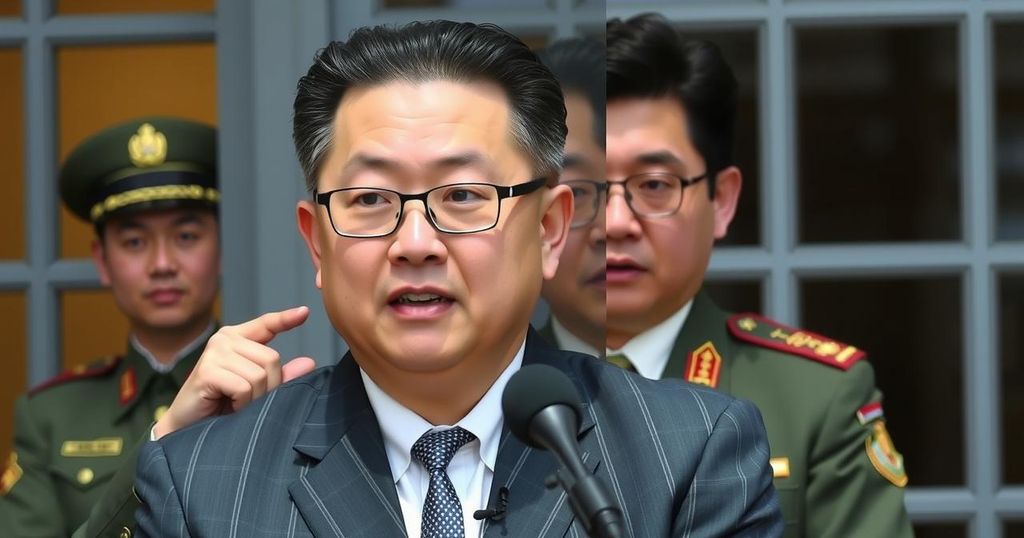Zelensky Proposes North Korean Prisoner Exchange Amid Escalating Conflict

Ukrainian President Volodymyr Zelensky proposed a prisoner swap with North Korea, offering captured North Korean soldiers in exchange for Ukrainians held in Russia. Intelligence officials from South Korea are assisting Ukraine in interrogating the captured soldiers. Additionally, recent Russian attacks have left thousands in Kherson without power, while North Korean troop casualties in Ukraine may exceed 3,000. UK lawmakers are encouraging advancements in AI for warfare, and Boris Johnson suggests that Ukraine’s accession to NATO could help resolve the conflict.
Ukrainian President Volodymyr Zelensky has proposed a prisoner exchange with North Korean leader Kim Jong Un, offering to return captured North Korean soldiers in exchange for Ukrainian soldiers held in Russia. This initiative follows the capture of two North Korean soldiers in the Kursk region. Zelensky noted that additional North Korean soldiers are likely to be captured, reinforcing his commitment to retrieving Ukrainian forces from Russian custody. South Korean intelligence officials are actively supporting Ukraine in questioning the captured North Korean soldiers, indicating a significant connection between North Korea and the ongoing conflict in Ukraine.
In a recent Russian attack on Kherson, approximately 23,000 households lost power due to damaged infrastructure. The region has been consistently targeted by Russian forces, resulting in extensive damage to both residential areas and social infrastructure. Alongside this, reports indicate that North Korean troop casualties in the conflict may have surpassed 3,000, with numbers containing both fatalities and injuries. The South Korean National Intelligence Service cites instances of North Korean troops reportedly being instructed to commit suicide to avoid capture, reflecting the dire circumstances surrounding their involvement in the war.
Furthermore, discussions around the implications of artificial intelligence in warfare have surfaced, with UK lawmakers advocating for advancements in this technology to enhance defense strategies. Former British Prime Minister Boris Johnson has suggested that Ukraine’s potential accession to NATO could be pivotal for the resolution of the ongoing conflict, emphasizing the need to communicate firmly with Russia regarding its imperialistic ambitions. Overall, the ongoing exchange of military tensions not only highlights Ukraine’s strategic maneuvers but also exposes the complex international dynamics at play within the conflict.
The current war in Ukraine, initiated by Russia’s invasion in 2022, has led to a plethora of international concerns, including the involvement of North Korean troops. Ukrainian President Volodymyr Zelensky has actively sought to navigate these complexities through diplomacy, such as suggesting prisoner exchanges with North Korea, which aligns with broader geopolitical tensions. The conflict has also spurred discussions around advancements in warfare technology, as countries like the UK consider lessons learned from the conflict to enhance their military capabilities. Furthermore, the relationship between North Korea and Russia has implications for regional stability and security, as reported troop casualties indicate a higher commitment of North Korean forces to the Russian cause.
The proposal by President Zelensky to engage in a prisoner swap with North Korea underscores Ukraine’s ongoing struggle to reclaim its soldiers and reflects the intricate web of alliances and hostilities in the region. With significant casualties reported among North Korean troops and continued Russian aggression in Ukraine, the conflict raises important questions regarding international military strategies and the future of regional security. The perspectives of key political figures, including Boris Johnson, further illustrate the necessity for decisive action to address the war’s repercussions and the roles different nations can play in its resolution.
Original Source: www.independent.co.uk








